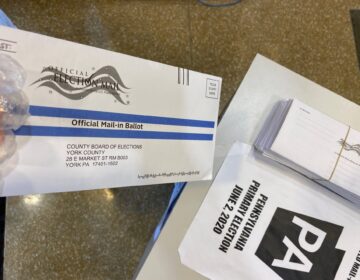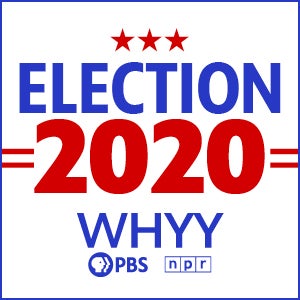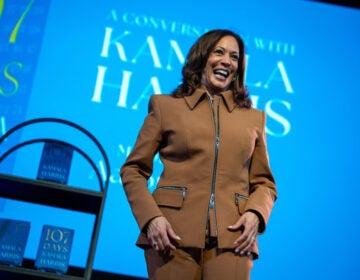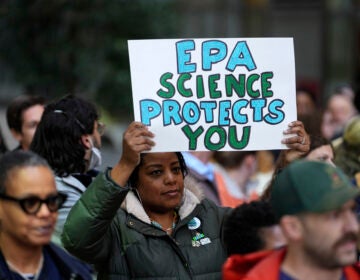Democrats celebrate Kamala Harris as historic VP pick
Sen. Kamala Harris is the first Black woman, and the first woman of Asian descent, to be on a major party ticket.
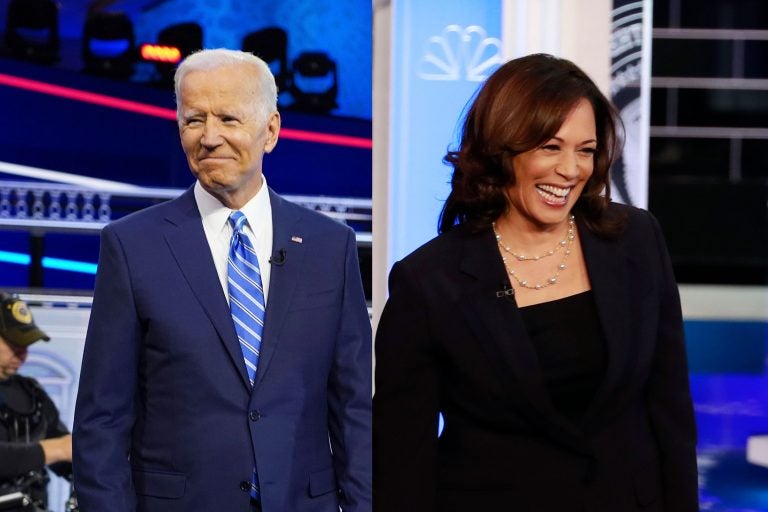
Former Vice President Joe Biden and Sen. Kamala Harris, D-Calif. stand on the stage before the start of a Democratic primary debate, Thursday, June 27, 2019, in Miami. (Alberto E. Tamargo/Sipa USA/Sipa via AP Images and Wilfredo Lee/AP Photo)
U.S. Sen. Kamala Harris is now the first Black woman, and the first Asian American woman, to ever join a presidential ticket for either major political party. And if Joe Biden wins November’s presidential election, the Democrat from California will be the first woman, period, to serve as vice president.
Harris, 55, was born in Oakland, California to an Indian mother and a Jamaican father. She went on to become a district attorney in San Francisco, then California Attorney General, before becoming a U.S. Senator.
When the Biden campaign made public its long-awaited vice presidential pick on Tuesday afternoon, many Democrats from across the greater Philadelphia region and beyond were enthusiastic — if not surprised — and noted the groundbreaking nature of the choice.
“We’ve been expecting it to a degree,” said state Rep. Malcolm Kenyatta, a Democrat from Philadelphia who has been a Biden supporter since the former vice president first announced his candidacy. “I think she’s someone who not only represents a sea change in terms of … this moment, but she represents one of the most qualified vice presidential nominees.”
“I congratulate my [Congressional Black Caucus] colleague and AKA Sister Kamala Harris on being the Dem nominee for Vice President: an excellent choice,” said U.S. Rep. Bonnie Watson Coleman of New Jersey. Both Watson Coleman and Harris are members of Alpha Kappa Alpha, the country’s first Black Greek-letter sorority.
Wayne Frederick, president of Howard University, Harris’s alma mater, said on Twitter that Harris being tapped for VP is an “extraordinary moment.”
“Senator Kamala Harris’ selection as the Democratic vice presidential candidate represents a milestone opportunity for our democracy to acknowledge the leadership Black women have always exhibited, but has too often been ignored,” he said.
Harris is the first graduate of a historically Black university to be part of a major party ticket.
Nina Ahmad, a former deputy Philadelphia mayor who is running for state auditor general, tweeted her support with the hashtag “#DesiSisterSolidarity.” U.S. Sen. Bob Casey called Harris an “excellent and historic pick for VP,” and said she’d been instrumental in pushing for policing reform and family assistance in the Senate. State Attorney General Josh Shapiro said Harris completes a “winning ticket.” On Instagram, state Sen. Vince Hughes of Philadelphia dubbed her a “sensational senator for a sensational moment.”
The 2020 election could hinge on whether Democrats are correct in those assessments.
And while much of the party is projecting confidence about Harris’s odds at shoring up turnout among Black voters and speaking to liberal Pennsylvanians who were left cold four years ago, others think her record as a prosecutor speaks to a very different wing of the electorate.
In 2016, Hillary Clinton lost Pennsylvania by less than one percentage point. Part of her problem was higher-than-expected turnout among white, pro-Trump voters. Another, equally crucial issue was low turnout among Black voters.
In Philadelphia, for instance, low Black voter turnout was largely responsible for Clinton winning almost 35,000 fewer votes in the city than Barack Obama had four years previously.
LaFleur Stephens-Dougan, an assistant politics professor at Princeton University who studies the ways racial appeals work in American politics, said as she’s analyzing the 2020 presidential race, she’s keeping a particular eye on the younger, more progressive Black voters who have lately been calling for policing reform and fundamental changes to the U.S. criminal justice system.
She doesn’t see much love for Harris among those voters — noting, she’s seen the former district attorney and attorney general derisively referred to as “Cop-ala.”
In Harris’s bid for district attorney, in 2003, she cast herself as more conservative than the incumbent Democrat. In that role, she pledged not to use the death penalty, though as Attorney General she later appealed a judicial decision that had deemed California’s death penalty unconstitutional. Throughout her career, she has lobbied for rehabilitative justice over harsh penalties, but critics maintain she isn’t truly progressive on criminal justice.
“I’m a bit skeptical about how much she’s going to be able to mobilize Black voters,” Stephens-Dougan said. “At least in the primaries, she didn’t fare that well with them generally.”
So who does Stephens-Dougan expect Harris to do well with?
“Probably the white moderate,” she said. “Who doesn’t want to vote for Trump maybe … but at the same time might be concerned about the party going too far left and too radical.”
In her research, Stephens-Dougan has found that “Black candidates in particular often have more latitude to indicate that they’re not going to be too liberal on racial issues relative to some of their white counterparts.”
Surveys have shown Biden struggling somewhat to build support among Black voters. Though overall in Pennsylvania, recent polling averages have him beating President Donald Trump by about seven points.
Stephens-Dougan notes, Harris’s impact on the race “remains to be seen.”
Staunch Biden supporters, like Kenyatta, say picking Harris as vice president is a way to acknowledge that Black voters have long been “the backbone of the Democratic party for cycle after cycle after cycle.”
He noted that Black women specifically vote for Democrats more consistently than any other demographic group.
“Black women are the organizers. They’re also the people getting folks out to the polls. They’re also the people who wake up early on Election Day to sit at the tables to make sure the voting process works,” he said. “Black women are pivotal to our democracy.”

Get daily updates from WHYY News!
WHYY is your source for fact-based, in-depth journalism and information. As a nonprofit organization, we rely on financial support from readers like you. Please give today.



